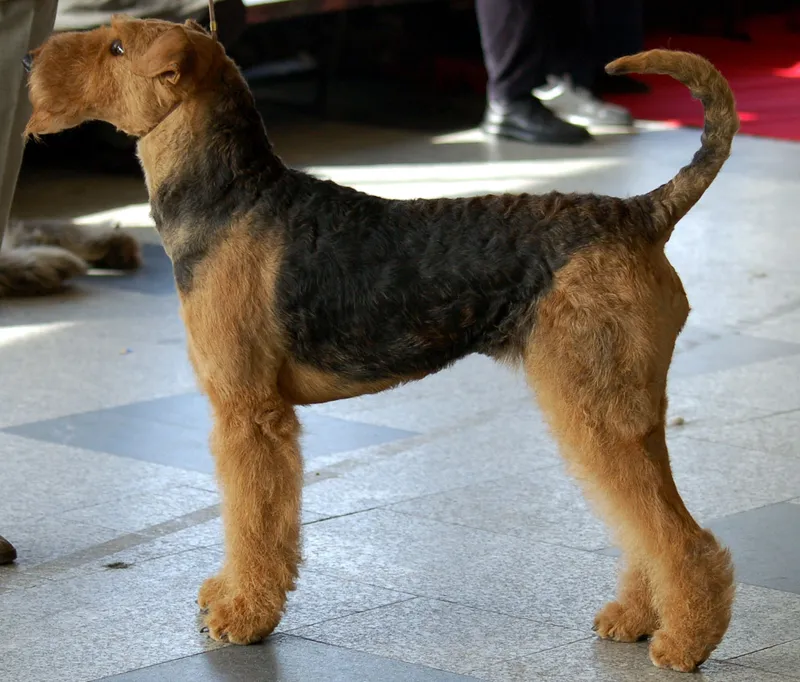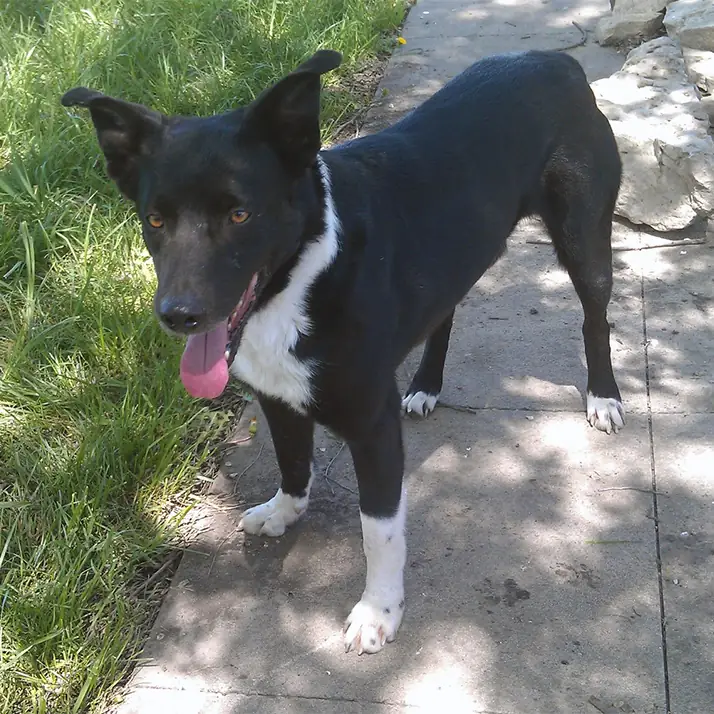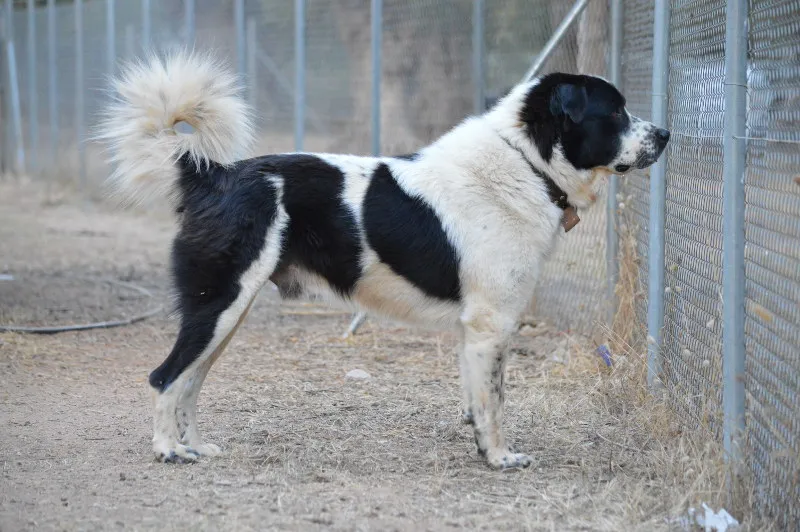Entlebucher Mountain Dog
Also known as: Entelbucher Cattle Dog, Entelbucher Mountain Dog, Entlebucher Sennenhund
The Entlebucher Mountain Dog is a medium-sized, energetic breed known for its herding abilities, loyalty, and intelligence. With a striking tricolor coat, they thrive in active households and excel in various dog sports.
⚡At a glance
🏆Best traits
Key Facts
- Height
- 40.64-53.34 cm
- Weight
- 24.95-29.48 kg
- Life Span
- 11 - 15 years
- Group
- Herding
- Origin
- Switzerland
- Shedding
- Low
- Exercise
- 60 min/day
- Best For
- Families, Active Owners
Overview
🐕Breed Overview
✨Key Traits
💡What Makes Entlebucher Mountain Dog Special
The Entlebucher Mountain Dog is characterized by its strong work ethic, intelligence, and loyalty. They are highly trainable and excel in various canine sports, showcasing their agility and versatility.
Their herding instincts make them natural protectors, and they often take on the role of guardians for their families. This breed thrives in active households where they can participate in outdoor activities and engage in training.
Their affectionate nature makes them great companions, but they require consistent training and socialization to ensure they develop into well-rounded adults. The Entlebucher is known for its playful demeanor and love for family interactions, making them a delightful addition to any home.
The Entlebucher Mountain Dog, the smallest of the Swiss Sennenhund breeds, is a medium-sized, compact, and muscular dog known for its agility and intelligence. Originating from the picturesque Entlebuch Valley in Switzerland, this breed has a rich history as a herding and working dog, traditionally used to move livestock between pastures. With a striking tricolor coat of black, tan, and white, the Entlebucher is not only visually appealing but also possesses a lively and affectionate personality.
They are known for their loyalty to their families and their protective instincts, making them excellent watchdogs. Their playful nature and high energy levels require regular exercise, ideally 60 to 90 minutes daily, which can include activities like hiking, running, and agility training. The Entlebucher is also highly trainable, responding well to positive reinforcement methods.
However, they can exhibit stubbornness, so early socialization and consistent training are essential. With a lifespan of 11 to 15 years, the Entlebucher Mountain Dog is a versatile companion that thrives in active households where they can participate in various activities. Whether herding, competing in dog sports, or simply enjoying time with their families, these dogs are eager to please and make wonderful companions for those who can meet their exercise and mental stimulation needs.
🎉Fun Facts
Entlebuchers have a strong herding instinct and may try to herd children and other pets if not properly trained.
The Entlebucher Mountain Dog is known for its agility and excels in dog sports like agility and obedience competitions.
They are often referred to as the 'Swiss Army Knife of the canine world' due to their versatility in various roles.
Breed Characteristics
Family & Friends
Good Behavior
Get Up & Go
Household Harmony
Temperament & Personality
🐕Core Temperament
The Entlebucher Mountain Dog is known for its confident and lively temperament. They are friendly and affectionate with their families, displaying loyalty and devotion. This breed is intelligent and eager to learn, making them highly trainable.
However, they can also be independent and may exhibit stubbornness if not properly guided. Their protective instincts make them wary of strangers, but they are generally good with other dogs and pets. Early socialization and consistent training are essential to help them develop into well-adjusted adults.
Overall, the Entlebucher is a cheerful and capable companion, thriving in active households.
💫Personality Profile
The Entlebucher Mountain Dog is a lively and affectionate breed that forms strong bonds with its family. They are known for their intelligence and eagerness to please, making them relatively easy to train.
However, they can also exhibit an independent streak, which may lead to stubbornness if not managed properly. This breed is generally friendly with other dogs and pets but may display herding behaviors, such as chasing or nipping.
They are protective of their families and can be somewhat reserved around strangers, making them excellent watchdogs. Their playful nature and high energy levels require regular exercise and mental stimulation to keep them happy and well-adjusted.
🔊Vocal Tendencies
The Entlebucher Mountain Dog has a moderate noise level, with a tendency to bark when alerting to strangers or expressing excitement. They are not excessive barkers but will vocalize when they feel it is necessary, such as during play or when greeting family members.
Their barking can serve as an effective warning system, making them excellent watchdogs. While they may be reserved with strangers, they are generally friendly and affectionate with their families, often expressing their emotions through vocalizations.
Understanding their vocal behavior is important for managing their communication style and ensuring they are appropriately socialized.
Affection & Social Traits
Warm and balanced socially — here’s how it shows up day to day.
Energy & Activity
Moderate, steady energy — great for matching your routine.
Communication Style
Moderately talkative — a quick read on noise at home.
Care Requirements
🏃♂️Exercise Requirements
Daily Exercise
The Entlebucher Mountain Dog is an active and energetic breed that requires a significant amount of exercise to maintain its physical and mental well-being. Ideally, they should engage in at least 60 to 90 minutes of vigorous exercise each day. This can include a combination of activities such as brisk walks, running, hiking, and playing fetch.
They also enjoy participating in dog sports like agility and obedience training, which not only provide physical exercise but also mental stimulation. Puppies should have shorter, more frequent play sessions to avoid overexertion, while adult dogs thrive on longer, more intense activities. Regular exercise helps prevent behavioral issues such as boredom and anxiety, which can lead to destructive behaviors if not addressed.
Insufficient exercise can result in weight gain and a decrease in overall happiness, making it essential for owners to prioritize their Entlebucher's activity needs.
Preferred Activities
🏠Living & Adaptability
Space Requirements
The Entlebucher Mountain Dog is a medium-sized breed that thrives in environments where they have ample space to move and play. While they can adapt to apartment living, it is crucial that they receive sufficient daily exercise and mental stimulation to prevent boredom.
Ideally, they should have access to a secure yard where they can run and play freely. In urban settings, regular visits to parks or open spaces are essential.
Their energetic nature means that they do not do well in confined spaces for extended periods. Owners living in smaller homes should ensure they can provide daily exercise and mental challenges to keep their Entlebucher happy and healthy.
Climate Preference
🍲Feeding Guide
Schedule
Food Types
Portion Size
Special Nutritional Needs
The Entlebucher Mountain Dog benefits from a balanced diet rich in protein to support its active lifestyle. It's important to choose high-quality dog food that meets their nutritional needs, particularly during their growth stages.
Some individuals may have food sensitivities, so monitoring their reactions to different foods is essential. Regular veterinary check-ups can help identify any specific dietary requirements or health concerns.
✨Grooming Requirements
Grooming Overview
The Entlebucher Mountain Dog has a short, dense coat that requires minimal grooming. Regular brushing once or twice a week is sufficient to remove loose hair and keep the coat healthy.
During shedding seasons, more frequent brushing may be necessary to manage loose fur. Bathing should be done as needed, typically every few months or when they become particularly dirty.
Regular nail trimming and dental care are also important aspects of their grooming routine. Overall, the breed is relatively low-maintenance in terms of grooming, making them suitable for owners who prefer a dog with minimal grooming needs.
Care Schedule
Brush once or twice a week; bathe as needed, typically every few months; trim nails every 2-4 weeks.
Health Profile
⚕️Health Care
Regular health care is crucial for the Entlebucher Mountain Dog's longevity. Routine veterinary check-ups, vaccinations, and preventive treatments are essential to detect and address health issues early.
Maintaining a healthy weight through proper diet and exercise can prevent obesity-related problems, which are common in many breeds. Regular dental care and grooming also contribute to their overall health.
Owners should be proactive in monitoring their dog's health and seeking veterinary advice when necessary.
Health Issues Overview
⏳Average Lifespan
Genetic Factors
Genetics play a significant role in the lifespan of the Entlebucher Mountain Dog. Responsible breeding practices that prioritize health and genetic diversity can help reduce the risk of hereditary health issues.
Potential owners should seek out reputable breeders who conduct health screenings for common conditions affecting the breed, such as hip dysplasia and PRA. Understanding the genetic background of the dog can provide insights into potential health risks and help owners make informed decisions about their pet's care.
Living Conditions
The Entlebucher Mountain Dog thrives in environments that provide ample space for exercise and play. They do well in homes with access to a yard or nearby parks where they can run and explore.
Their lifespan can be positively influenced by a healthy diet, regular exercise, and mental stimulation. Social interactions with humans and other pets also contribute to their overall happiness and longevity.
Inadequate living conditions, such as confinement in small spaces without sufficient exercise, can lead to behavioral issues and a shorter lifespan.
🏥Common Health Issues
Hip Dysplasia
Warning Signs
🔬Diagnosis
X-rays and veterinary examination.
💊Treatment
Medications, weight management, and in severe cases, surgery.
📝Management Tips
Maintain a healthy weight, provide joint supplements, and avoid excessive jumping or strenuous activities.
Progressive Retinal Atrophy (PRA)
Warning Signs
🔬Diagnosis
Veterinary eye examination and genetic testing.
💊Treatment
No cure, but management strategies can help.
📝Management Tips
Regular veterinary check-ups and monitoring for vision changes.
Ectopic Ureter
Warning Signs
🔬Diagnosis
Ultrasound and veterinary examination.
💊Treatment
Surgery and management of urinary health.
📝Management Tips
Surgical intervention may be necessary; regular veterinary care is essential.
🛡️Preventive Care
🔬Hip Evaluation
Hip Evaluation assesses the hip joints for dysplasia and other abnormalities, crucial for maintaining joint health in active dogs.
📅 Annually, starting at 12 months of age.
🔬Eye Examination
Eye Examination checks for hereditary eye conditions, including PRA, ensuring early detection and management of potential vision issues.
📅 Every 1-2 years, or as recommended by a veterinarian.
🔬DNA for PRA
DNA testing for PRA identifies carriers and affected dogs, helping breeders make informed decisions to reduce the prevalence of this condition.
📅 Before breeding, and as needed for individual dogs.
Training
🧠Intelligence & Trainability
💪Work Drive
The Entlebucher Mountain Dog has a strong work drive and thrives when given tasks to complete. They excel in activities that challenge their physical and mental abilities, such as herding, agility, and obedience training.
Providing them with a job, whether it's herding livestock or participating in dog sports, is essential for their happiness and well-being. Without sufficient mental and physical stimulation, they may become bored and engage in undesirable behaviors.
Engaging them in regular training sessions and activities that utilize their natural instincts will keep them fulfilled and content.
⚠️Training Considerations
The Entlebucher Mountain Dog is an intelligent breed that can sometimes exhibit stubbornness, making training a challenge if not approached correctly. Common behavioral challenges include herding instincts that may lead them to chase after small animals or children.
To overcome these challenges, consistent training and socialization from a young age are crucial. Positive reinforcement techniques work best, as they respond well to praise and rewards.
Providing mental stimulation through puzzle toys and interactive games can also help channel their energy and intelligence into productive activities. Regular training sessions that incorporate fun and engaging tasks will keep the Entlebucher motivated and focused.
📝Training Tips
Training an Entlebucher Mountain Dog requires patience, consistency, and positive reinforcement. Start with basic obedience commands and gradually introduce more complex tasks as they master the basics. Socialization is essential; expose them to various environments, people, and other animals to help them develop into well-rounded adults.
Incorporate play into training sessions to keep them engaged and motivated. Short, frequent training sessions are more effective than long, drawn-out ones. Consider enrolling in obedience classes or agility training to provide structured learning and social interaction.
Remember to celebrate their successes, no matter how small, to build their confidence and strengthen your bond.
History & Heritage
📜Origin Story
The Entlebucher Mountain Dog originated in the picturesque Entlebuch Valley of Switzerland, where it was bred by farmers to assist in herding cattle and managing livestock. The breed's ancestors are believed to be descended from large Molosser-type dogs brought to Switzerland by the Romans over 2,000 years ago.
The Entlebucher was primarily used for driving dairy cows from mountain pastures to farms, showcasing its agility and intelligence. Despite facing challenges in the early 20th century, including a decline in population due to the impacts of World War I, the breed was revived through the efforts of dedicated breeders.
The Entlebucher Mountain Dog has since become a cherished companion and working dog, known for its loyalty and versatility.
⏳Development History
The Entlebucher Mountain Dog is the smallest of the four Swiss mountain dog breeds, known collectively as Sennenhunds. The breed's history dates back to the end of the 19th century, with its first formal description appearing in 1889.
Initially, the Entlebucher and the Appenzeller were considered the same breed until they were officially recognized as distinct breeds in 1927. The breed faced near extinction during World War I, but dedicated breeders worked to revive it, leading to the establishment of breed standards and clubs.
Today, the Entlebucher is recognized by various kennel clubs, including the American Kennel Club, and is valued for its intelligence, agility, and affectionate nature.
🛡️Purpose & Historical Role
Originally bred for herding and guarding livestock, the Entlebucher Mountain Dog has evolved into a versatile companion and working dog. Its historical role involved moving herds of cattle between pastures and serving as a reliable watchdog.
Today, the breed is appreciated not only for its herding abilities but also for its participation in various dog sports, including agility and obedience competitions. The Entlebucher is known for its strong work ethic and adaptability, making it a valuable partner in both rural and urban settings.
🏺Cultural Significance
The Entlebucher Mountain Dog holds a significant place in Swiss culture, particularly in the Entlebuch Valley where it originated. Historically, these dogs were essential to the herding and management of livestock in the Swiss Alps, showcasing their versatility and intelligence.
They are celebrated not only for their working abilities but also for their loyalty and companionship. In modern times, the breed has gained recognition in various dog sports and competitions, further solidifying its status as a beloved companion and working dog.
The breed's unique characteristics and history have made it a symbol of Swiss heritage, and it continues to be cherished by dog enthusiasts around the world.
Conservation Status
The breed exists today and isn’t classified as extinct.
Less widespread; more likely to be region-specific or niche.
This breed is less common but has stable populations in certain regions.
?Frequently Asked Questions
Is the Entlebucher Mountain Dog good for apartment living?
The Entlebucher Mountain Dog can be moderate when it comes to apartment living. With adequate daily exercise and mental stimulation, apartment life can work, but they would benefit from more space. Regular walks and interactive play sessions are important for their well-being.
How much does a Entlebucher Mountain Dog shed?
The Entlebucher Mountain Dog sheds minimally compared to many other breeds. While no dog is truly hypoallergenic, this breed produces less loose hair than average. Routine brushing will help manage the little shedding they do.
Are Entlebucher Mountain Dogs easy to train?
Yes, the Entlebucher Mountain Dog is quite easy to train and generally eager to please their owners. They respond well to positive reinforcement and can pick up new commands relatively quickly. This makes them a good choice for both experienced and first-time dog owners.
How long do Entlebucher Mountain Dogs live?
The average lifespan of a Entlebucher Mountain Dog is 11 - 15 years. Lifespan can be influenced by genetics, diet, exercise, and overall health care. Regular veterinary check-ups and a healthy lifestyle can help your Entlebucher Mountain Dog live a long and happy life.
Is the Entlebucher Mountain Dog good with kids?
Yes, the Entlebucher Mountain Dog generally does well with children. They are patient and affectionate, making them a solid family dog. As with any breed, supervision during interactions with young children is always recommended.
How much exercise does a Entlebucher Mountain Dog need?
The Entlebucher Mountain Dog is a high-energy breed that needs approximately 60 minutes of exercise daily. They thrive with vigorous activities such as running, hiking, or interactive games. Without adequate exercise, they may develop behavioral issues from pent-up energy.
Is the Entlebucher Mountain Dog good with other pets?
The Entlebucher Mountain Dog can be moderate around other pets. They can get along with other animals when properly introduced and socialized from an early age. Gradual introductions and positive associations will help build harmonious relationships.









